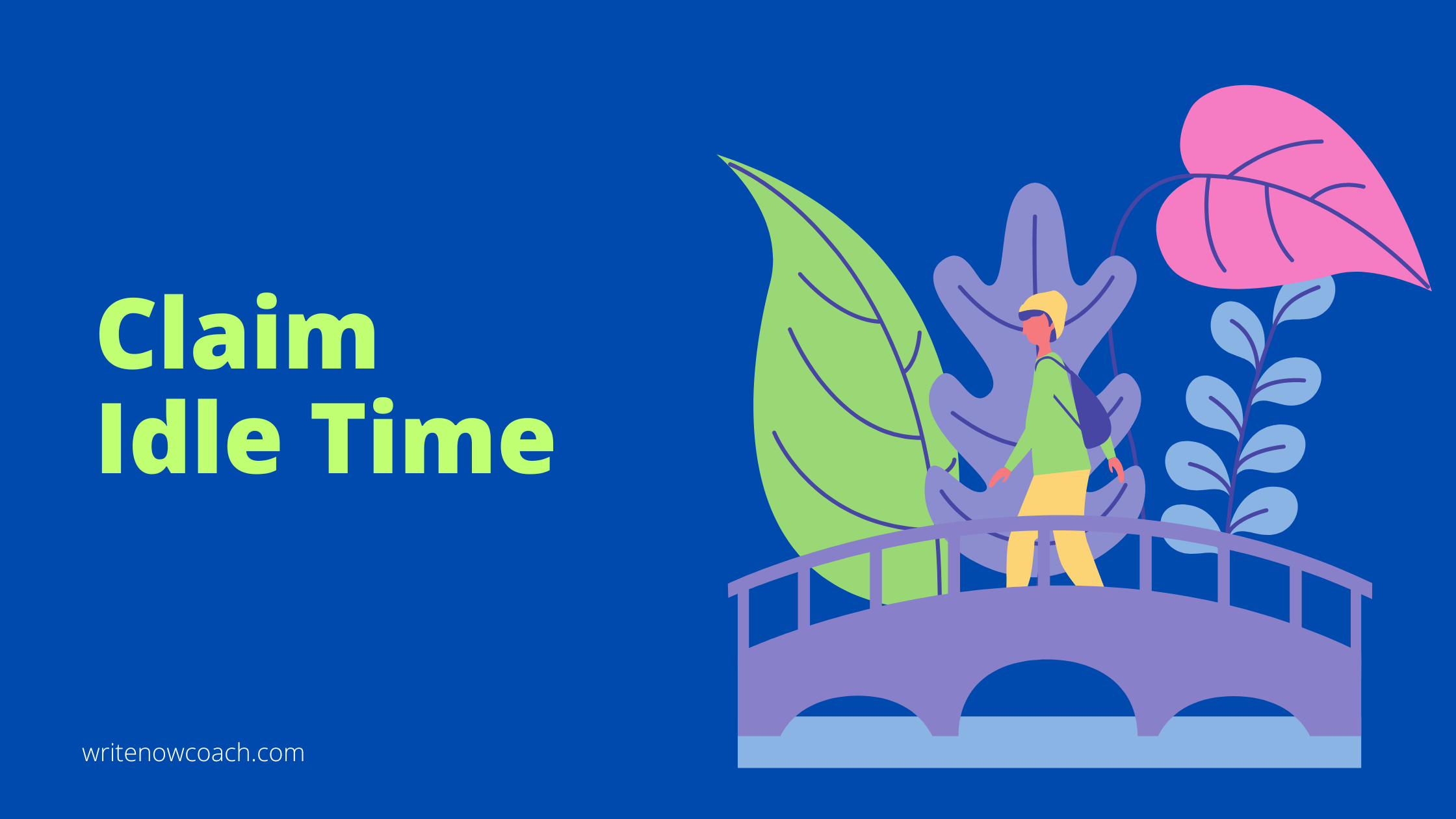Claim Idle Time
July 4, 2023
Note From Rochelle
Dear writers,
Hello, hello, and happy Fourth to those who celebrate.
Today’s tip is an excerpt from my book, Level Up. I tend to be a workhorse—that’s what my thesis advisor called me—push right through. But that’s not the sanest or most productive approach. It helps to take time off. It helps to just hang out and daydream. And that’s what today’s tip is about: claiming idle time.
Happy writing,
Rochelle, the Write Now! Coach
Claim Idle Time
When I am constantly running there is no time for being. When there is no time for being there is no time for listening.
– Madeleine L’Engle
Several weeks ago, I set aside a Saturday to work on my business plan. I packed up my computer, calendar, and books and headed to the library. I spent the next two hours staring at my lists, mind maps, book outlines, and business goals. I left the library feeling discouraged. My inner critic launched into her usual rant: You don’t work hard enough.
When I spoke to my coach about it, she had an insight: I’d misdiagnosed the problem. I was busting my butt. I didn’t need to work harder. I needed a break.
Lately, I’ve become aware of how little time I have to simply be idle. It’s a rare moment when I’m not working, writing, talking, texting, teaching, or coaching. And when I do have a free moment, I use it to check one of my digital devices. I’m not alone. Americans spend 2 hours and 30 minutes a day on social networks.
I’ve written repeatedly about how writers need idle time to develop their ideas. At a writing conference, I heard Sara Paretsky talk about how her best books emerged from fallow periods, when she had the time to listen for the voices of her characters.
Research backs up this anecdotal evidence. In a 2009 study led by Professor Kalina Christoff, University of British Columbia Dept. of Psychology, researchers discovered that when our minds wander, two parts of our brain get activated: our default network (the part associated with routine mental activity) and our executive network (the part linked to complex problem-solving). Christoff and her team concluded that when we get stumped by our work, it might be helpful to focus on simple, routine tasks and let our minds wander.
If you’re struggling to find new ideas, develop your story, explore a character’s voice, describe a setting, or simply get something down on paper, you might need some idle time. This quest will help you get up and do…nothing!
The Quest
Set aside at least an hour for this quest. Several hours could be better. Turn off your device before doing this task (scary but you can do it!).
Engage
Spend time engaged in a mindless task. Here are some ideas.
- Walk
- Nap
- Sweep
- Swim
- Ride in a car, train, or bus
- Chop vegetables
- Weed
- Paint
- Bake
Reflect
Afterwards, reflect on how the quest went—were you able to daydream? (If so, record your daydreams!) Did you have enough time? Was the task you chose sufficiently mindless to allow you time to dream? What would you tweak for your next daydreaming session?
Game Play Tips
- Daydreaming takes practice! Repeat this quest as often as needed to connect with your inner visions. We get better at being idle the more we do it. Not only that, the practice can deliver deeper benefits once we’ve done it a few times.
- Watch out for your villains and inner critics—they tend to attack when our minds are idle. If this is a problem for you, it can be helpful to listen to uplifting music during the first few times you do this quest.
- This quest is also a power-up—something you can do whenever you get stuck to strengthen your writing muscles! Woot!
For the Win
Many people like to say, you can’t get something for nothing! In this case, they’re plain wrong. Idle time benefits us in so many ways. Think of it as a car trip for your brain (in fact, car trips can be one of the best places for daydreaming)! Whenever you feel overwhelmed by work or life, do nothing.









